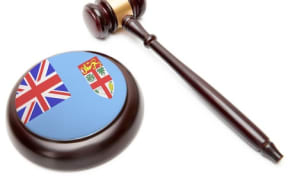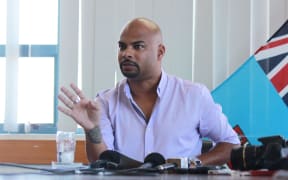Fiji Prime Minister Frank Bainimarama has admitted torture is an issue in his country.
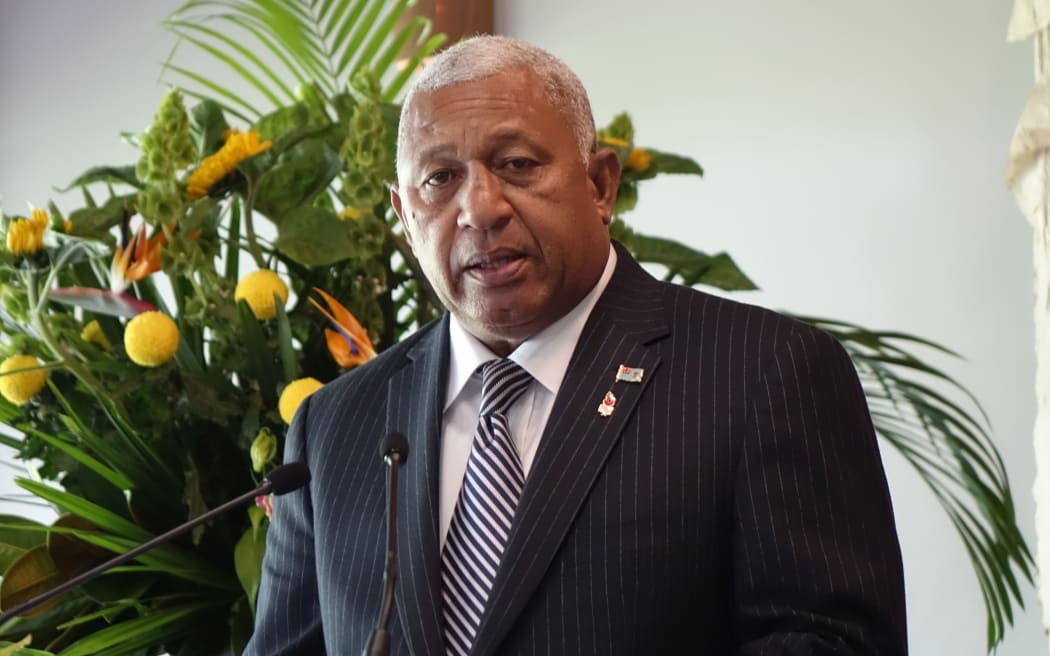
The Fiji Prime Minister Frank Bainimarama at Government House in Auckland Photo: Alex Perrottet / RNZ
He has also pointed to Australia's treatment of asylum seekers on Nauru and PNG's Manus Island as an example of stark and degrading treatment.
Mr Bainimarama, who was launching a regional workshop on the implementation of the United Nations Convention Against Torture, also raised the use of torture by the United States.
The prime minister said Fiji's constitution prohibits torture and the country has never had a state sanctioned policy of torture, or one of inflicting cruel, inhumane or degrading treatment or punishment.
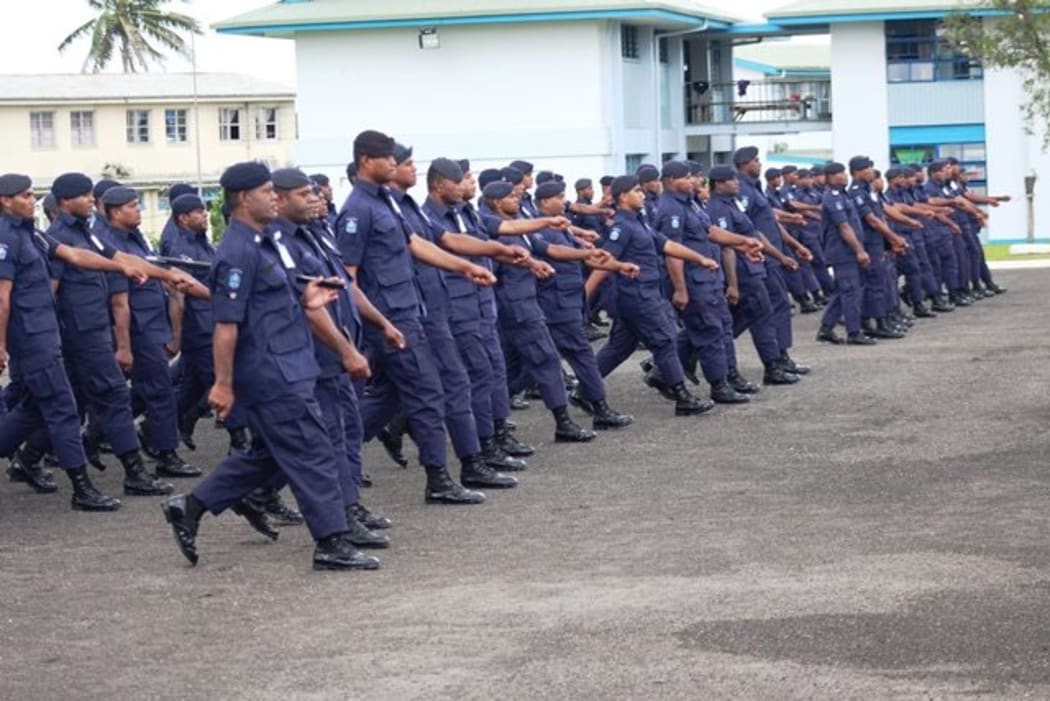
Fiji police Photo: Facebook Fiji Police
But he said Fiji has had occasional problems with people taking the law into their own hands and he has asked delegates to ensure Fiji is judged by the same standards that apply to other nations.
Mr Bainimarama said the US is using torture to combat terrorism while Australia is detaining innocent people in cruel, inhumane or degrading circumstances.
He said what has happened in Fiji is vastly different, though no less serious.
The prime minister said there have been isolated instances of individuals or groups from the disciplined forces acting in an undisciplined way and resorting to acts of torture and other forms of punishment that violate the human rights of their fellow citizens.
He urged other Pacific nations to join Fiji and the other two countries in the region - Vanuatu and Nauru - that have already ratified the UN convention.
Mr Bainimarama said Fiji does not tolerate human rights abuses of any kind.
He said they are legally and morally unacceptable and that the perpetrators of such abuses will be brought to justice.
The prime minister said the police commissioner is currently investigating whether excessive force was used in the recent apprehension of a group of suspected criminals in Navua that was captured on video by a passer-by.
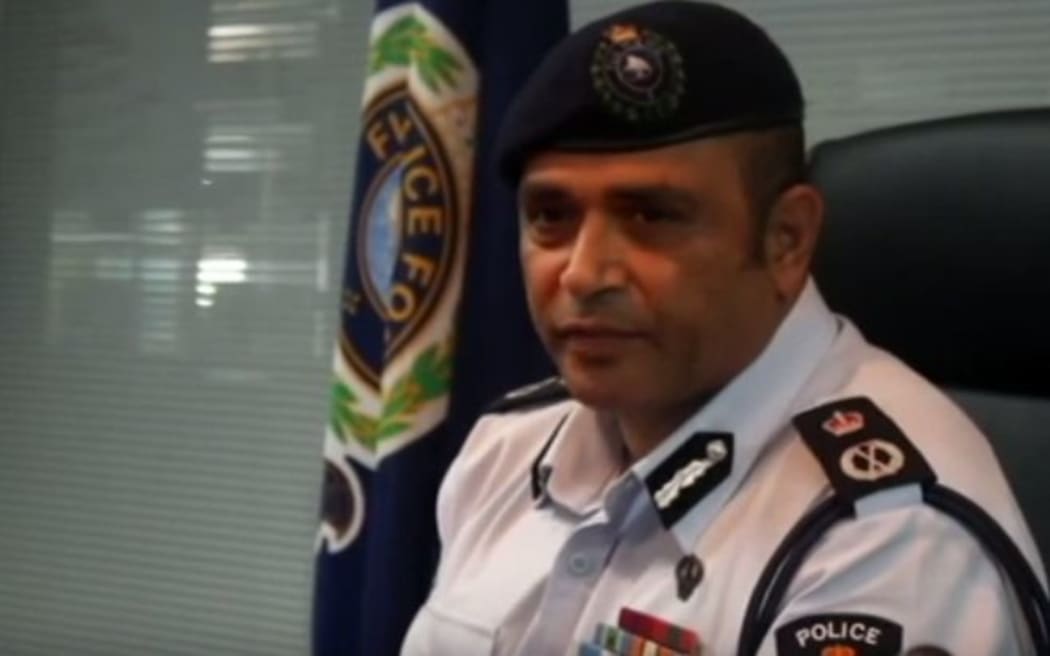
Fiji's Police Commissioner, Sitiveni Qiliho. Photo: Fiji PM's YouTube channel.
He also said a trial is underway in Lautoka for the alleged rape and subsequent death of a detainee, Vilikesa Soko.
Mr Bainimarama said there has long been a culture in Fiji of people resorting to violence, which can be directed against women in the home, instilling discipline in children or the police attempting to extract confessions from criminal suspects.
He said this culture, called buturaki - the beating - is deeply ingrained in parts of the Fijian psyche.
But the prime minister said it is not acceptable in the modern age.
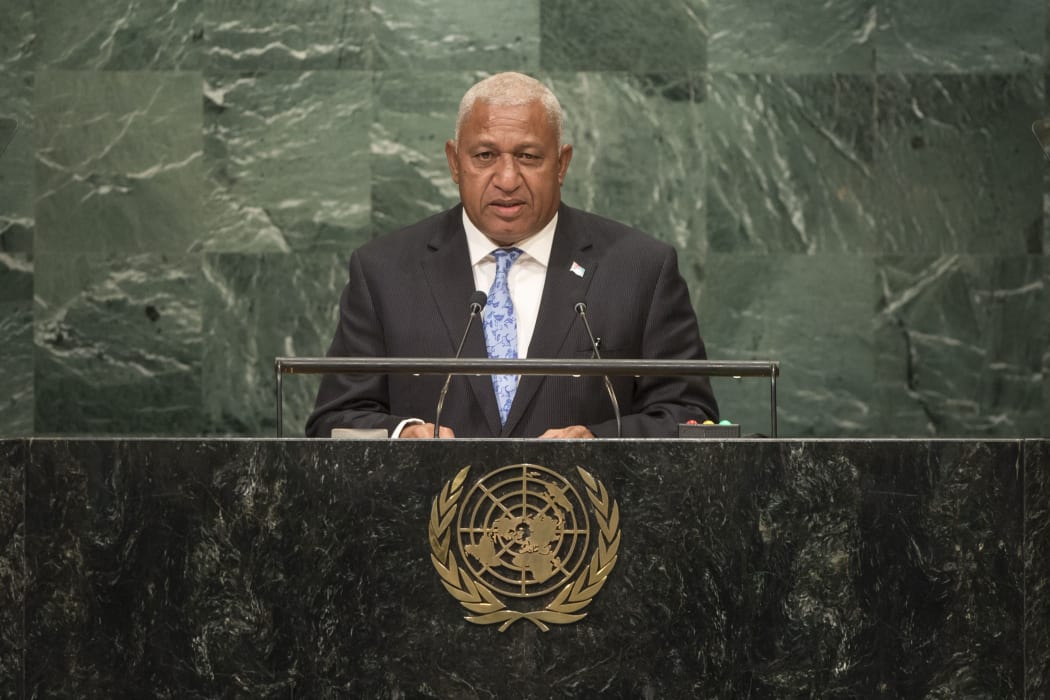
Fiji Prime Minister Frank Bainimarama addressing the 71st Session of the UN General Assembly in New York in September 2016 Photo: Supplied
So his government has embarked on a process of culture change starting in the nation's schools, where corporal punishment has been banned, in the hope that if children aren't beaten institutionally, they won't grow up beating others.
And Mr Bainimarama said the government is saying far more forcefully than in the past that violence in any form has no place in Fijian life.
He also said they are making it clear in the ranks of the disciplined forces, through a process of education and deterrence, that there is now a policy of zero tolerance for torture and other human rights abuses.
